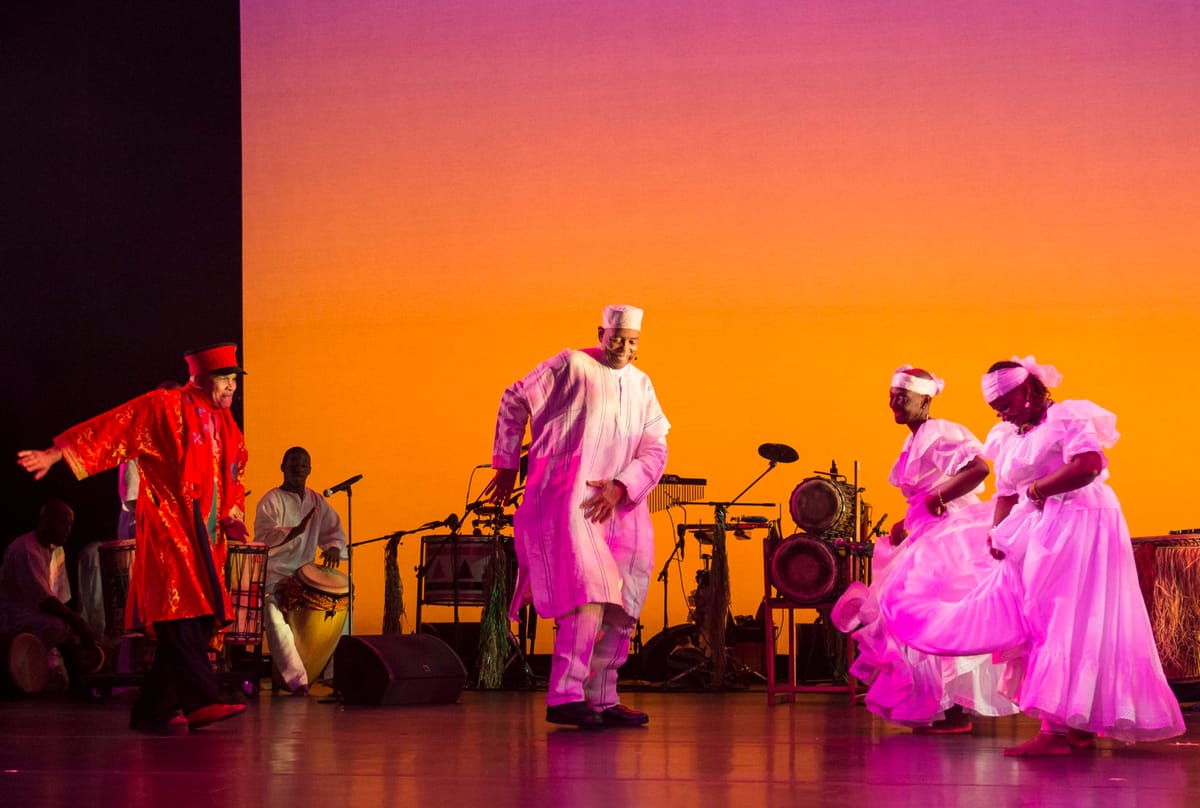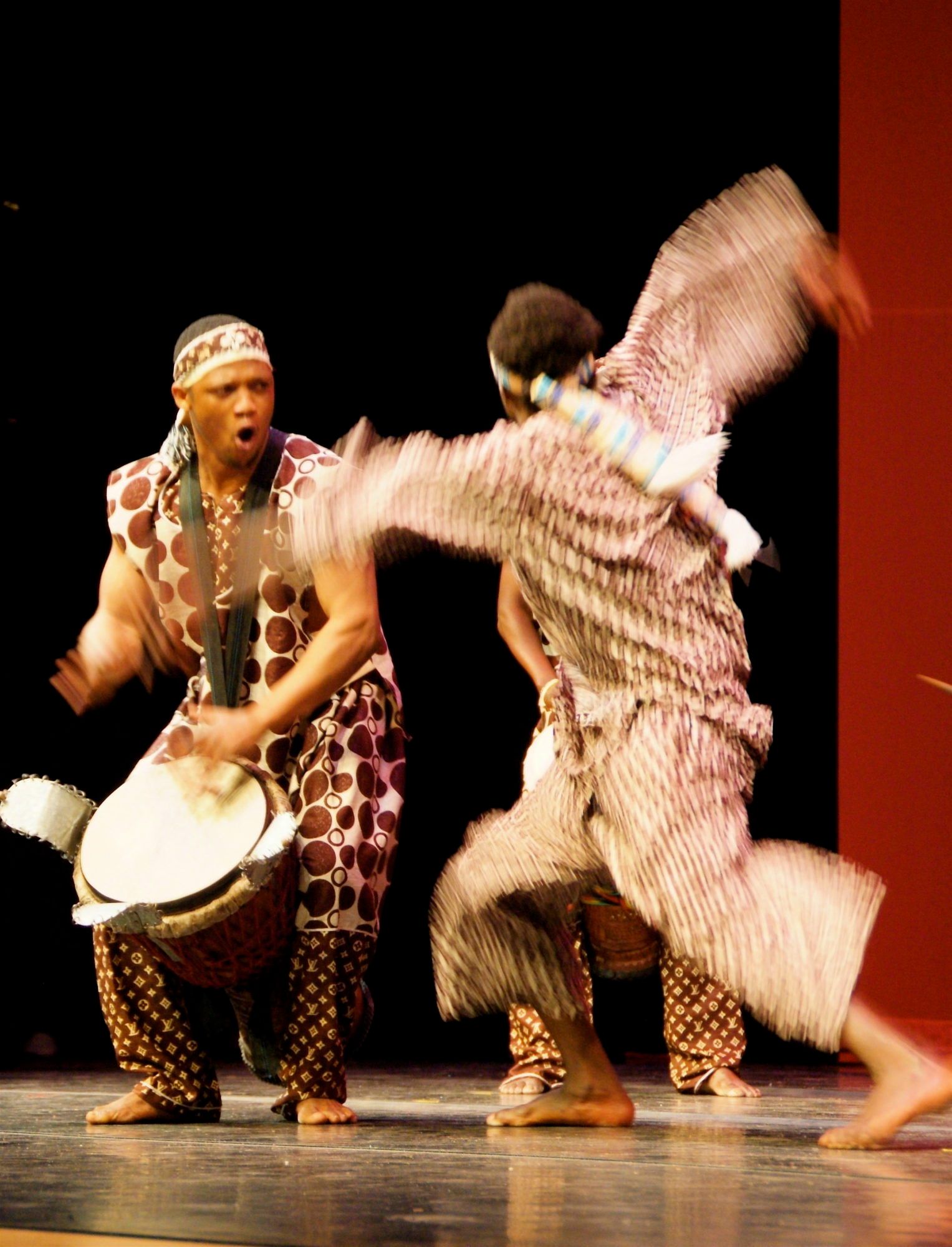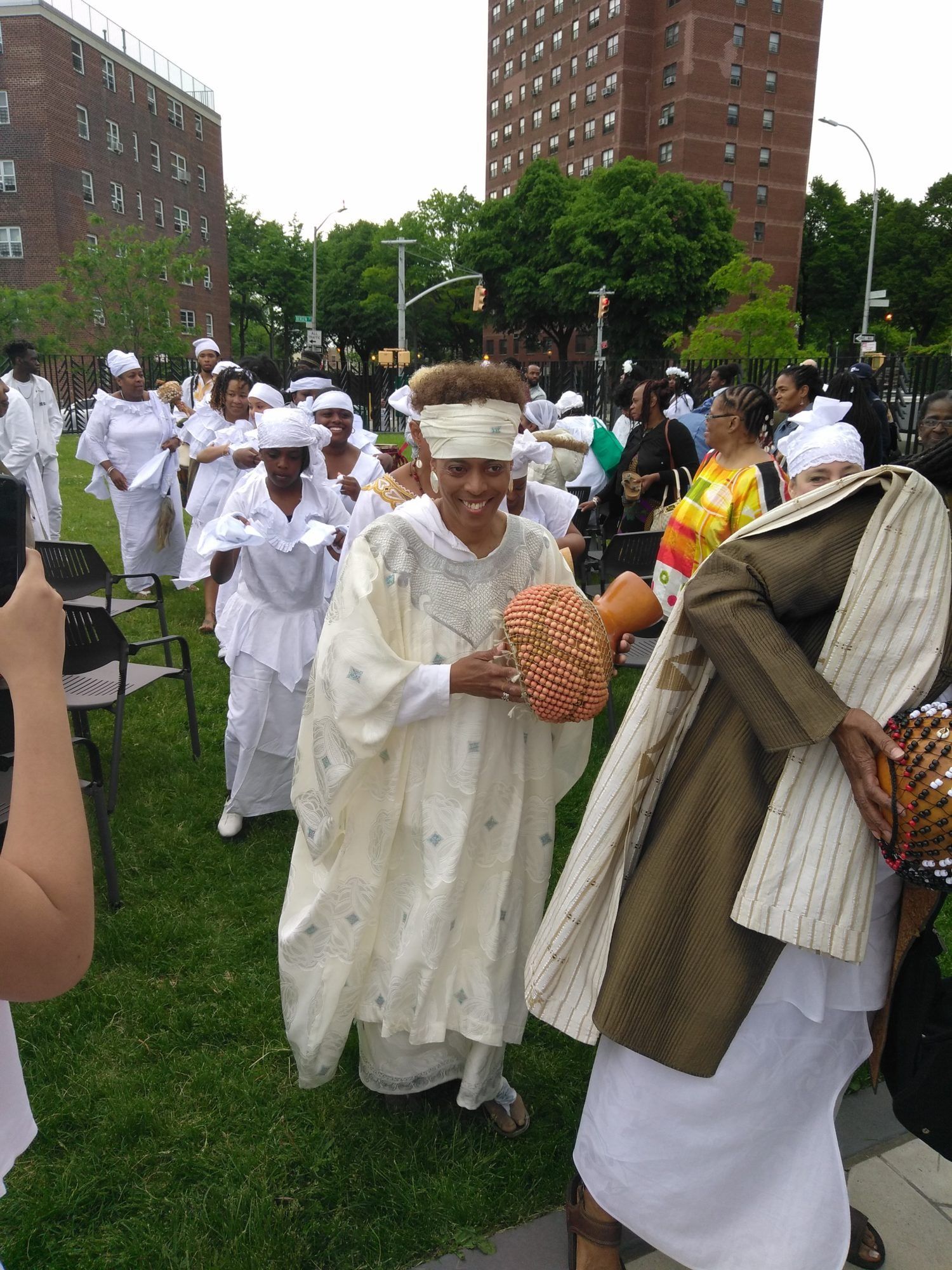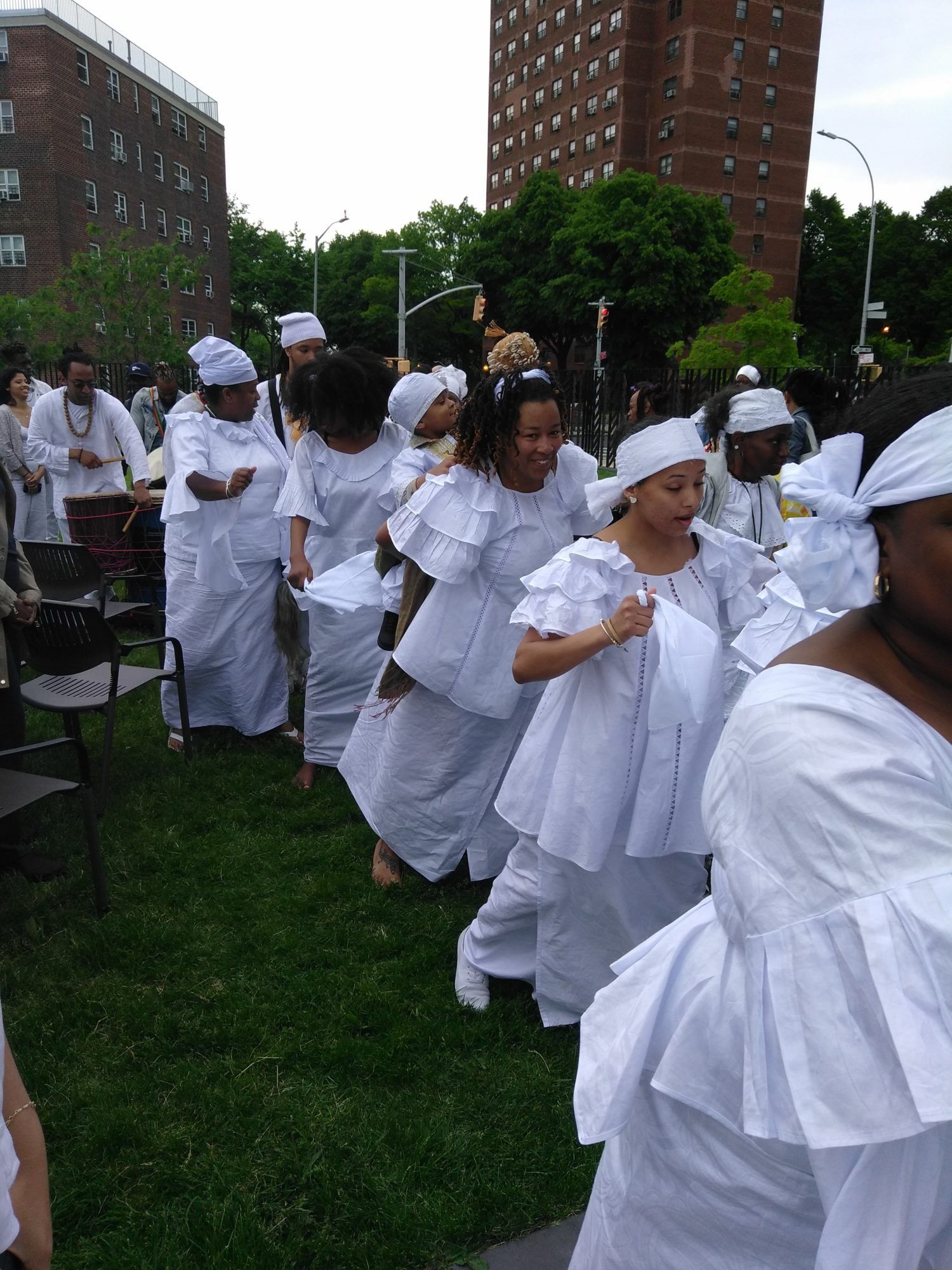DanceAfrica 2017: Remembering Festival’s Founding Director, Chuck Davis


Just days before DanceAfrica was scheduled to open its 40th anniversary season at the Brooklyn Academy of Music, the founding director, Chuck Davis, passed away on Sunday, May 14. Contemplating the reality of staging the week-long festival in the wake of Davis’ passing, artistic director Abdel R. Salaam said, “We all have a belief that spirit is something that constantly flows between us. Confluence keeps us together. Chuck is always there.”
The Chuck Davis Dance Company set up an “African village” in BAM’s Lepercq Space in 1977, launching what has become the Academy’s longest-running program and a Memorial Day tradition in Brooklyn. Returning the following spring under the name DanceAfrica, it has grown to include performances by domestic and international dance troupes, community events, educational presentations, films and visual arts in an enthusiastic celebration of African and African-American dance culture.
The choreographer founded the Chuck Davis Dance Company in New York in 1968 and the African American Dance Ensemble in North Carolina in 1983. Davis traveled and studied widely in Africa, and brought knowledge of traditional African dance back to the United States. He performed and taught throughout the country and received a Bessie Award in 2014 for outstanding service in the field of dance.
Salaam, whose own company Forces of Nature appeared several times in DanceAfrica performances, joined the festival in a transitional role two years ago to prepare to succeed Davis as artistic director. When asked in 2014 “how it felt to step into someone like Chuck’s shoes,” he recalled, “I said that’s an improbability because he wears a size 14. I think what I have to do is take my own 11 ½ and make the biggest footprint that I can.”
Salaam has drawn on his experience as a choreographer for theater, television and film to make his mark on the festival. “Chuck brought an amazing sense of art as it marries itself to the community,” he said. “I think what I was able to bring is using best of what Western theater has to offer—sound design, set design, stage design, theatrical lighting—to make that vision even larger than life and raising the arc of the experience.”
As artistic director of this year’s program, Salaam worked with Davis to meld three different dance companies (Illstyle of Philadelphia, Brooklyn’s Asase Yaa, and his own Forces of Nature) to create a 50-member “mega-company.” “I love story,” he said “so what I’m constantly attempting to do, in addition to presenting the best music and dance, is to always add an element of storytelling, to connect the entire evening into this journey where the audience becomes involved in the characters and the protagonist and the antagonist.”
Salaam’s story reflects the festival’s theme: The Healing Light of Rhythm: Tradition and Beyond. It begins in America, set in a community plagued by gun violence. “The whole first half of the program is about that,” he said. “And I’ve done it, hopefully, in an entertaining manner.”

The second half of the program features the Wula Drum and Dance Ensemble, 17 master drummers, dancers and instrumentalists from the country of Guinea. “The two young protagonists are raised into this kind of altered state of consciousness,” Salaam said. “They travel to the continent and go through a tribal initiation to become the better sides of their African young male selves, a ritual embodied with the Guinea men.”
The show reflects Salaam’s determination to present the contemporary dance culture of Africa along with more traditional elements. “Africa, like any other civilization, has a constant influx of imagery from America, from Europe, from Asia. They incorporate those images and forms and rhythms into their own multi-layered exploration of the contemporary world, taking their traditional languages and musical forms and rhythms. They deconstruct those things and begin to search for new layers, a constructive art form.”
The Healing Light will be presented at BAM’s Howard Gilman Opera House May 26-29. The DanceAfrica 2017 Festival began on Saturday, May 20 with the annual Tribute to the Ancestors, a traditional ceremony of music and dance that honors elders who have passed on. Later that day, students from Restoration/ART DanceAfrica participated in a Community Day at Restoration Plaza.
The Community Day celebration looks toward the future, and the Tribute to the Ancestors insures that DanceAfrica begins each year with a memory of the past. This year the occasion was especially poignant due to the recent passing of Davis.

Dancers in flowing white spun across the lawn at the Weeksville Heritage Center and then processed, dancing with a troupe of drummers and percussionists, into the building. Polyrhythms drew more and more spectators into the dance; mothers with babes in arms, toddlers and teenagers, and seniors who might easily remember the festival’s origins forty years ago all moved across the floor. “Peace, love and respect to everybody,” the crowd chanted as the event came to a close.

Community events continue as part of the festival. Throughout the Memorial Day weekend, DanceAfrica will host 150 vendors on Ashland Place in an outdoor bazaar featuring African, Caribbean, and African-American food, crafts and fashion. There are also DanceAfrica workshops on Monday, May 29, co-presented by BAM and the Mark Morris Dance group.
FilmAfrica, the cinematic companion to the dance festival, runs throughout the weekend at the BAM Rose Cinemas. Screenings from Friday, May 26 through Monday, May 29 include feature films, rare documentaries filmed in Guinea as the nation declared its independence in 1959, and a presentation of short works by four French-African filmmakers that create a complex portrait of life in the diaspora.
The FilmAfrica series debuts at 7 PM Friday evening (May 26) with a screening of Rain the Color of Blue with a Little Red In It, an homage to Purple Rain set in Niger’s Tuareg guitar scene.
Salaam appreciates the diverse experience DanceAfrica has become since Davis created it 40 years ago, identifying a core element he attributes to the founder’s vision: “the importance of the culture in the art and how it can uplift the spirit in real people.”
“Everything is connected,” he said on the eve of the performance. “It’s all connected to this one amazing elliptical spiral that moves forward and back, connects to something that was, pushes it a little forward and it arcs back and connects to something else. And in my particular case, it’s connected to the legacy of the theater of Western culture and Western dance and film. And at the same time, it is connected to the arc of experience I got through my African dance daddy, Chuck Davis, and the African dance forms of Guinea and Senegal and South Africa.”
“He was such an important man to the world of dance and society at large. I am completely humbled and at the same time excited by this gift he created of DanceAfrica. Let’s all send out a wish for Baba Chuck.”




